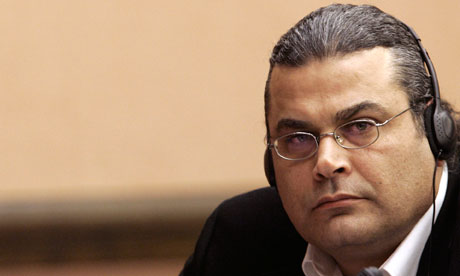By Alexandra Sandacz
Impunity Watch Reporter, Europe
MOSCOW, Russia – A former Russian policeman, Dmitry Pavlyuchenkov, was found guilty for the 2006 murder of investigative journalist Anna Politkovskaya. Politkovskaya was an aggressive critic of Russian President, Vladimir Putin. Pavlyuchenkov was sentenced to spend 11 years in a high security penal colony.

In addition to 11 years, Pavlyuchenkov was fined 3 million roubles for staking Politkovskaya’s apartment and providing Politkovskaya’s killer with the gun that shot her on October 7, 2006.
Politkovskaya was murdered in the hallway of her Moscow apartment building after returning home from a grocery store. She became a target after reporting on corruption in Russia and on human rights abuses in Chechnya.
The murder caused international outrage. Politkovskaya’s murder became a nationwide symbol of silencing free speech and the corruption of the judiciary since Putin came to power.
Pavlyuchenkov apologized to Politkovskaya’s two adult children and asked the court not to punish him too harshly. He stated, “I want to appeal to the family of Anna Stepanovna [Politkovskaya]; I simply want to ask for their human forgiveness.
Paylyuchenkov plead guilty to aiding Politkovskaya’s murder and asked for a reduced sentenced in return for his cooperation. In addition, the deal allowed Pavlyuchenkov to admit his guilt without testifying, which would prevent the reveal of the murder’s masterminds.
Despite Pavlyuchenkov’s apology, Politkovskaya’s children opposed the plea bargain and thought it would not hold those who ultimately ordered the murder responsible.
The killer and four others were tried separately. Rustam Makhmudov was accused of firing the fatal shots, and his brothers Dzhabrail and Ibragim were accused of acting as the getaway drivers. All three men were tried and acquitted for lack of evidence, but Russia’s supreme court overturned the verdict. The three men will be retried.
The prosecutors also determined Pavlyuchenkov was a member of a gang formed by Chechen crime boss, Lom-Ali Gaitukayev.
Following Politkovskaya’s murder, Putin called for her killers to be punished, however, he also described her work as “extremely insignificant.”
Politkovskaya’s murder is one of many opposition murders. In the past decade, various journalists and rights activists who were critical of the Russian government have been assassinated. Most of the killings remain unsolved.
For further information, please see:
RFE/RL – Ex-Policeman Gets 11 Years Over Politkovskaya Murder – 24 December 2012
Aljazeera – Ex-policeman jailed over Politkovskaya murder – 14 December 2012
BBC – Ex-policeman jailed in Russia over Politkovskaya murder – 14 December 2012
Reuters – Policeman complicit in Putin critic murder sentenced – 14 December 2012



